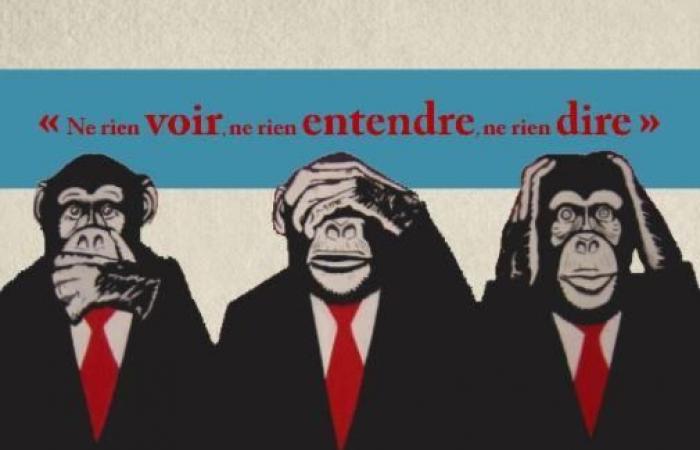Here is the best reflection received from our kind community who are still thinking and it is so reassuring! The subject is well posed, the analysis always humanist and caring without refusing to say things.
I therefore cannot help but share with you and with his agreement, his philosophical “work” which I also invite you to communicate and pass on to the youngest and students in your entourage.
This is how we debate, this is how we can think with nuance and therefore with intelligence.
Thinking well is actually a lot of work. This is what we call intellectual training.
You will also see that these reflections and this text bring us closer to the parable of the talents.
Is inequality an injustice?
Definitions
The equality is of two orders:
• Equality of accidents
Two individuals have the same physical property, the same weight, the same number, the same shape, the same location, etc. This is a quantity relationship. It is suitable for arithmetic equalities.
• Equality of substance
Of the same nature: two individuals of the same nature have identical dignity. This is a relationship of being.
Justice means giving everyone what is due to them.
(Injustice is the opposite).
It is obvious that two individuals are never equal in accident (the matter on which their nature is based would, if necessary, be confused, which is not possible).
On the other hand, it seems in the order of things that two beings of the same nature have the same dignity. There is therefore equality of substance due to the nature which they have in common.
Let’s take an example :
Let’s compare the equality of two phones: one from 2010 and the other from 2024. They have equality in substance, but no accident. It is obvious that the second phone has more computing power than the first. However, both are as much telephone as each other: they actually have the same nature.
Although neither phone has more “worthy” substance than the other, it is very fair to expect the 2024 phone to have greater capabilities and performance than the 2010 phone.
So we take it that there are two levels of equality, but only one justice. Since the 2024 phone has more capacity, it is expected to have better performance. Make
to each his due, therefore, in accordance with its provisions.
Equality among men
Therefore, two men are always equal in the order of dignity, but not in the material order, because they necessarily present different traits and have their own personality.
The same goes for the differences between men and women. There are obviously differences such as the ability to bear children or differences in physical strength.
These physical differences in no way take away the common nature they share: human nature.
Therefore, they are equal in dignity. This equality in dignity implies that they have rights and duties in accordance with morality and justice.
Answer
Inequality of accident has no influence on equality of substance.
On the other hand, accident inequalities generate a greater good, that of being open to life – in a broad sense: the capacity to act for oneself. We have in fact seen rather that it is not possible for two individuals to share exactly the same accidents, since in principle, these accidents define individuality.
Thus, it is easy to understand that the notion of justice does not apply in the accidents of the person, but on the contrary, by taking into consideration their entire nature: their substance.
Therefore, we quickly understand that the inequalities of accident allow the life of the substance, which is a greater order of justice. For example, it would be unfair for a man not to be able to live…
If we want true justice, it seems that we should not erase the differences that distinguish individuals of the same nature, but on the contrary take them into consideration so that each person can fulfill themselves according to the dispositions they have so that each person can attain the same dignity that is due to them.
Thus, it is profoundly unfair to ask a woman to be a man, an apprentice to have the same attributes as his master, a poor man to have the same resources as the rich. Likewise, it would be profoundly unfair for a rich person not to offer more resources to the poor (employment, etc.) to help them escape their condition. Where it would be just as unfair for an able person to earn as much without working as a less able person who works.
Justice consists of asking for what is in accordance with the person’s disposition. “To whom much has been given, much will be demanded, and of him to whom much has been entrusted, more will be required. » (St Luke, 12:48)
Solution
Is inequality an injustice?
No, because we cannot blame inequality for being the source of injustice.
First of all, let us note that the inequality of substance between two individuals of the same nature has no meaning. Because, by definition, if they have the same nature, it is because they are equal in substance. The ideology which considers that individuals of the same nature do not have equal dignity is called racism, from which Nazism stems.
As for the difference in nature between two individuals (eg: a leek and a goldfish), we cannot consider it as an injustice since the two beings do not have the same purpose. They have an end consistent with their predisposition (the leek grows in the earth, and the fish grows in the water). ️
The same goes for justice between individuals of the same nature whose differences bring them to their end.
We can therefore adopt two positions: one which considers differences as an injustice, and causes it; the other which considers differences as necessary for the exercise of justice.
1. By seeking to erase (accidental) inequalities, we relate to the case of an ideology which considers it as an inequality of substance. Indeed, if we seek to erase differences, it is because we assume that the person is not worthy of being what they are, that they would be more worthy of being according to another vision. that we project onto it. Thus, we want to modify the individual so that he corresponds to the image
that we want to have.
This is the essence of the LGBT fight: allowing everyone the freedom to become what they want, without trying to know if their nature tends towards a certain perfection. The differences are then unbearable in their eyes since they show the limits of their thinking: for example the fact that the woman gives birth and not the man shows that we do not choose what we are according to the sole good will of our will. Erasing the difference between men and women then allows them to justify that we choose independently of reality to be what we want. Likewise, an ideology which would consist of normalizing all human beings would generate
injustice, since for example, it would be unfair to take away from an athlete these abilities which he himself did not choose anyway.
2. Either inequality is taken into account to adapt the requirements and expectations of the individual according to their dispositions. In this way, the person is considered simply as he or she is. This vision alone makes it possible to achieve a greater order of justice. It is also a vector of charity, humility, and other virtues. In short, it is a vector of life!
Thus, true justice necessarily takes into account the inequalities of accidents to bring individuals to equal dignity, bringing with this same dynamic a much greater order in things! By seeking this healthy justice, greater goods flow than just the attainment of the justice sought.
1 In realistic philosophy (Aristotle, Saint Thomas Aquinas), each object is a substance and an accident. The accident designates all of the physical aspects of an object (shape, weight, size, chemical property, etc.). The substance for its part designates the individual nature of the object. This is what makes two zucchini equal in their natural (they are both as much zucchini as the other), but they have different accidents (different sizes, weights, colors, etc.).
2 “It is an act of justice to render to each one what I am”, Saint Thomas d’Aquin, Somme de Théologie, Secunda seconds, q61, a1.






